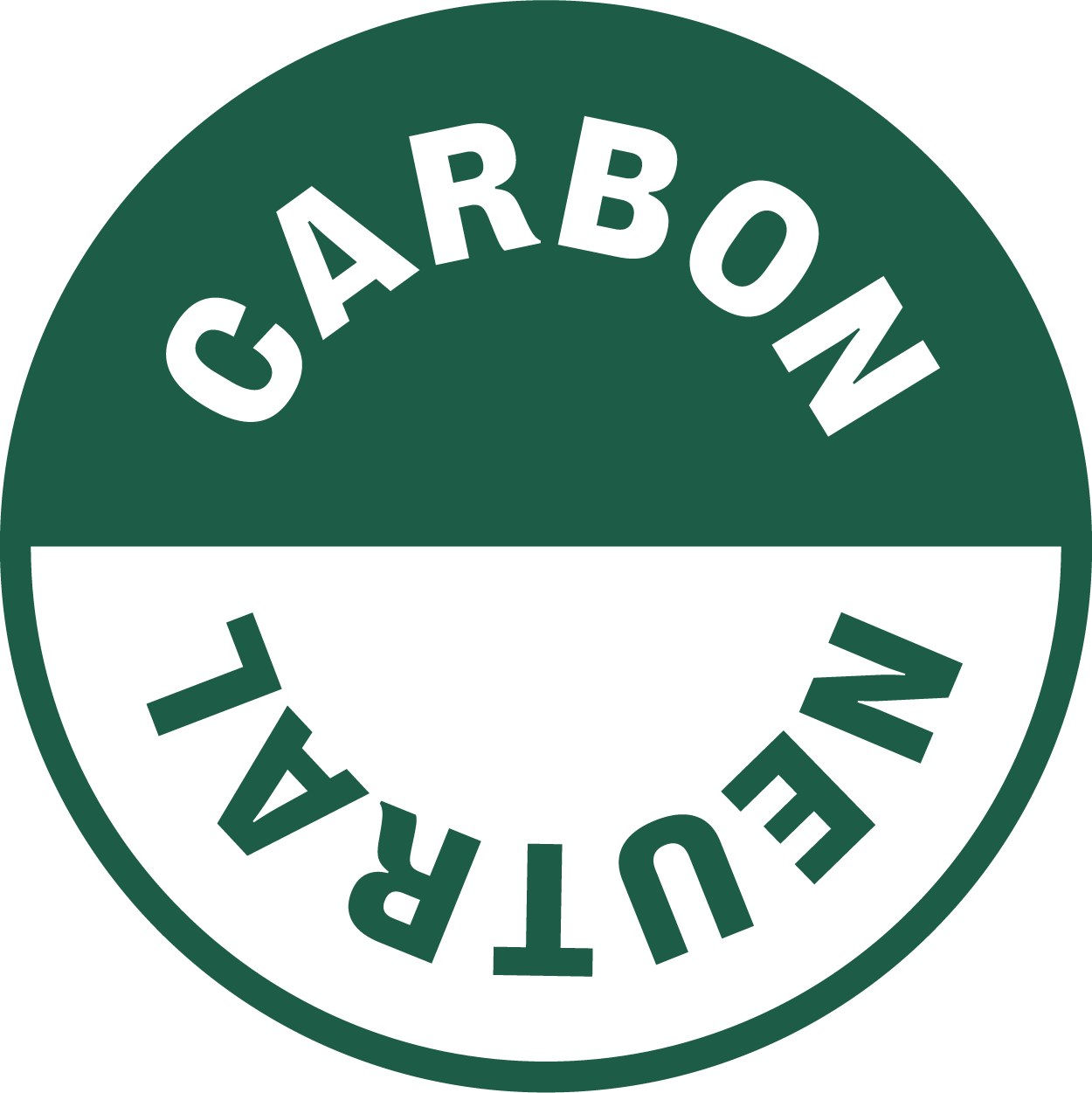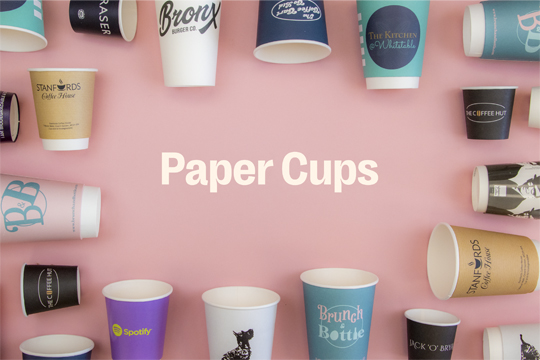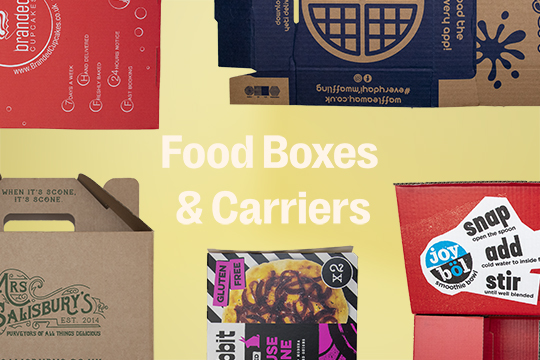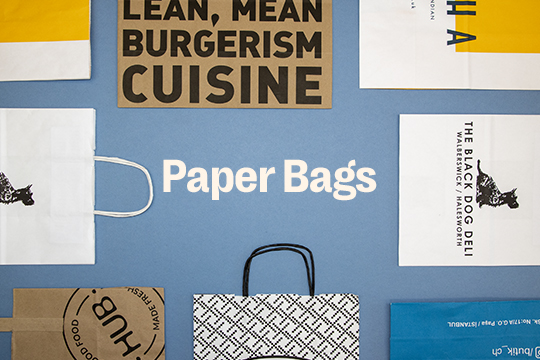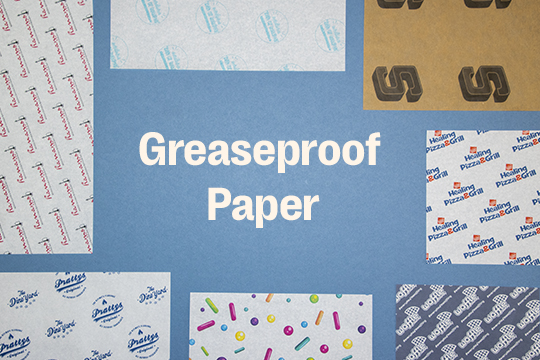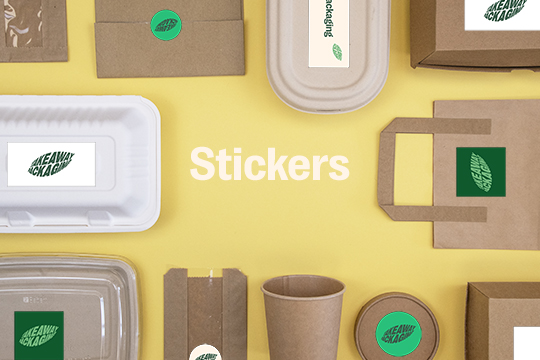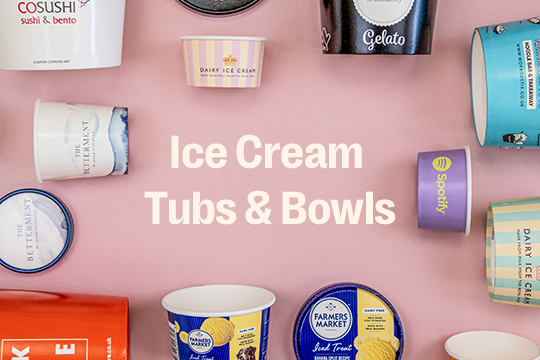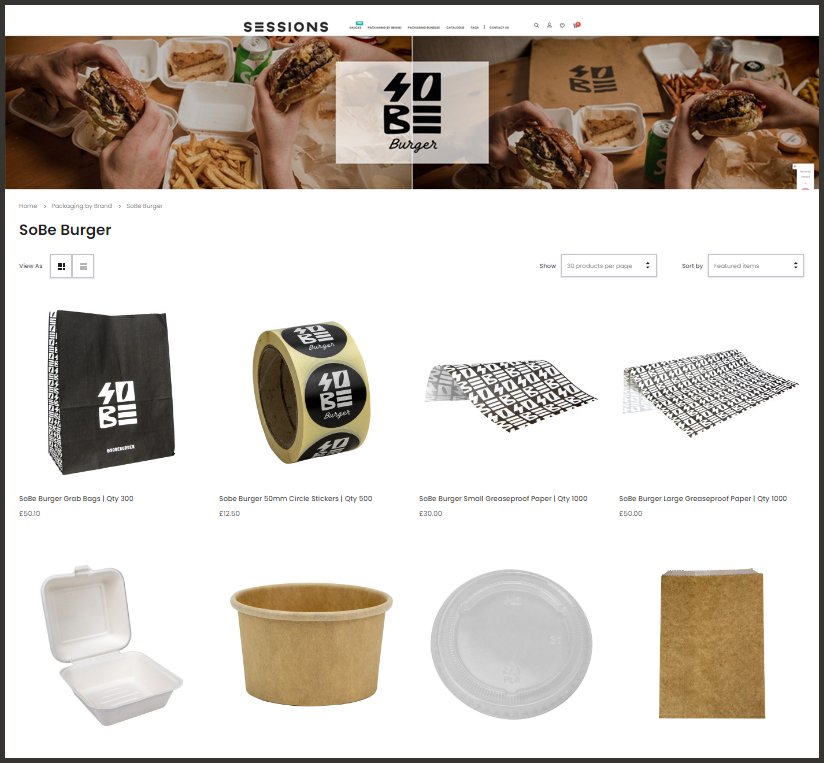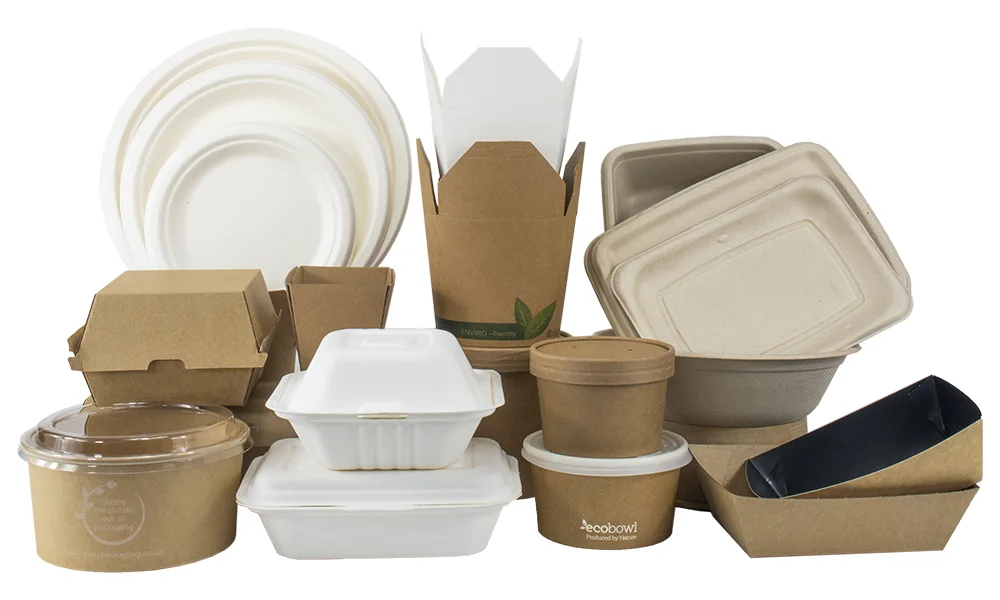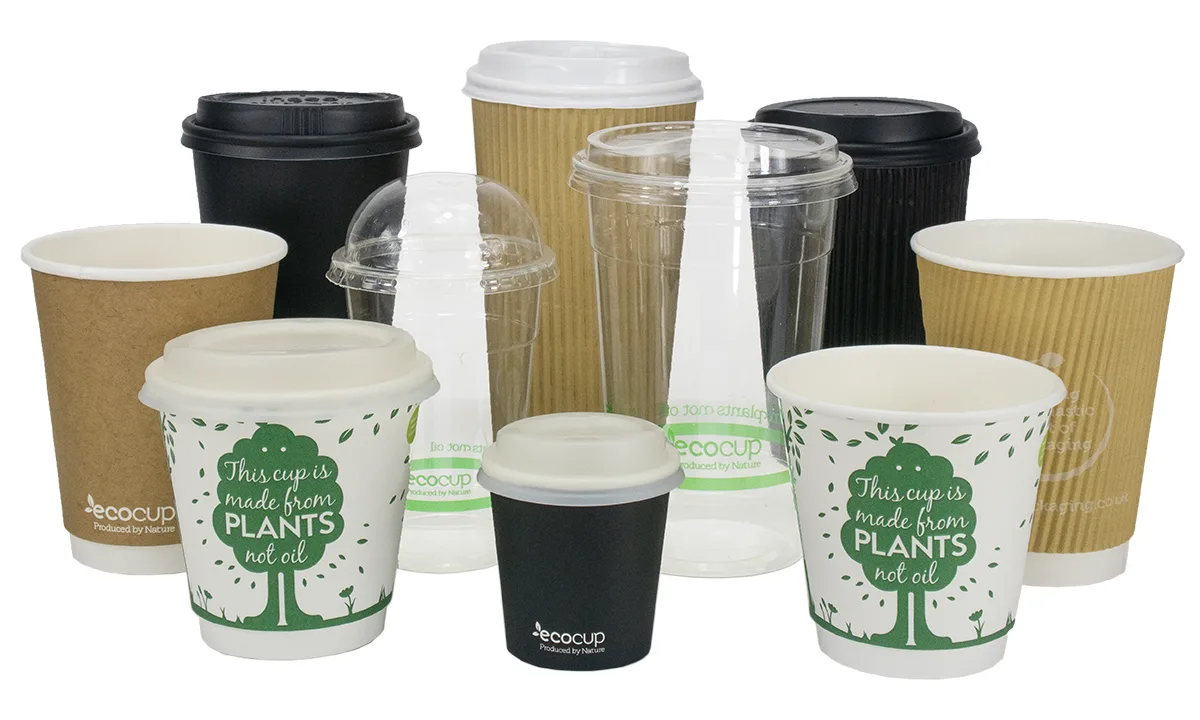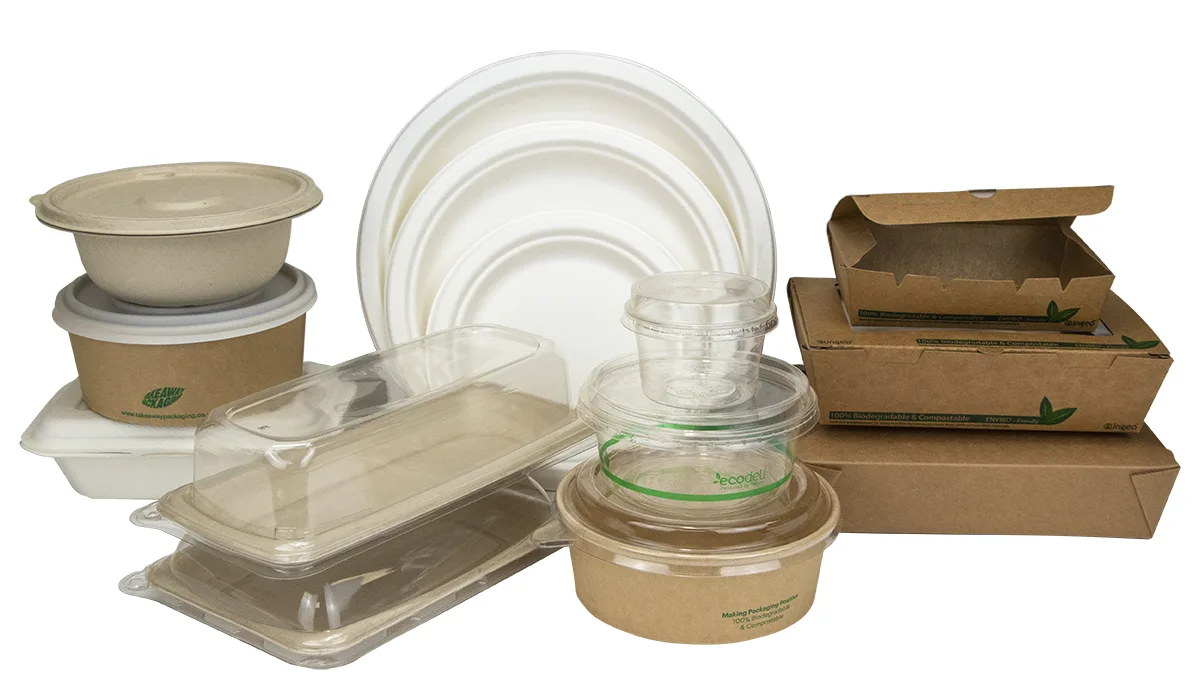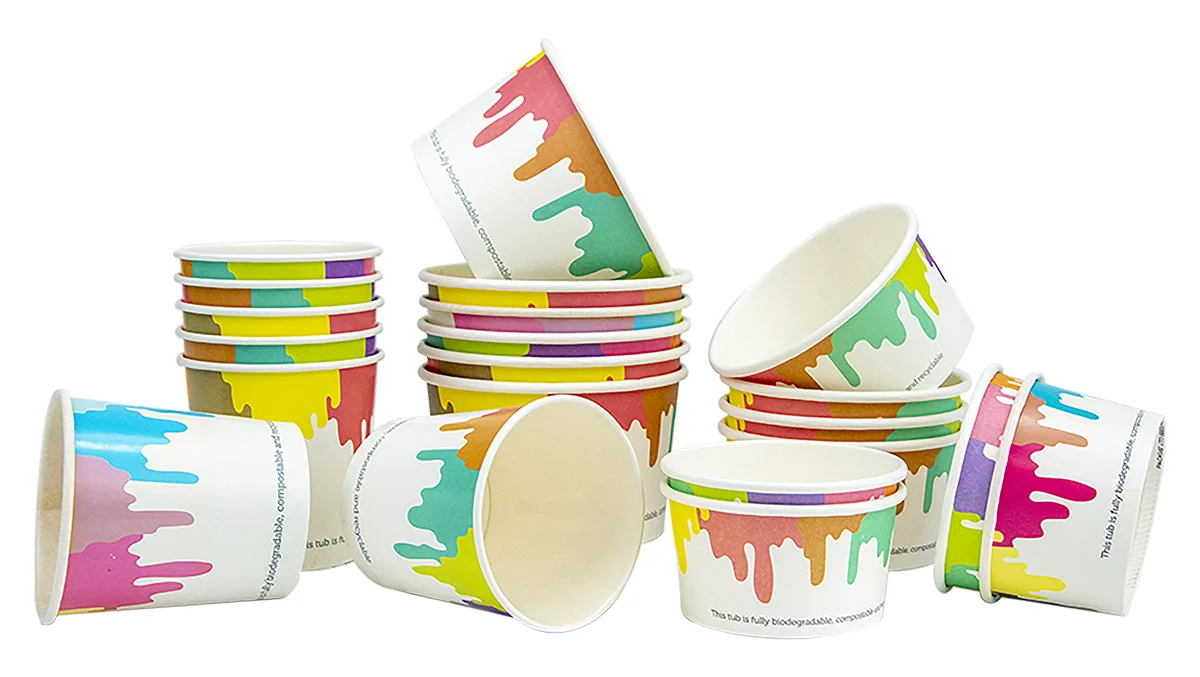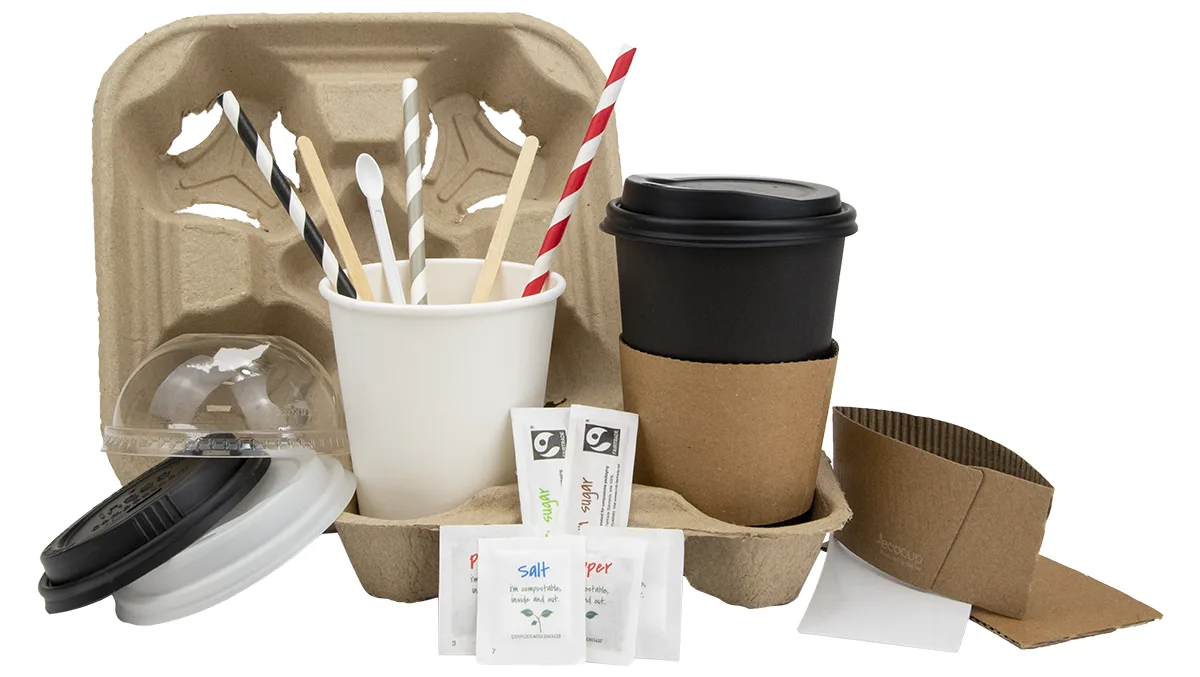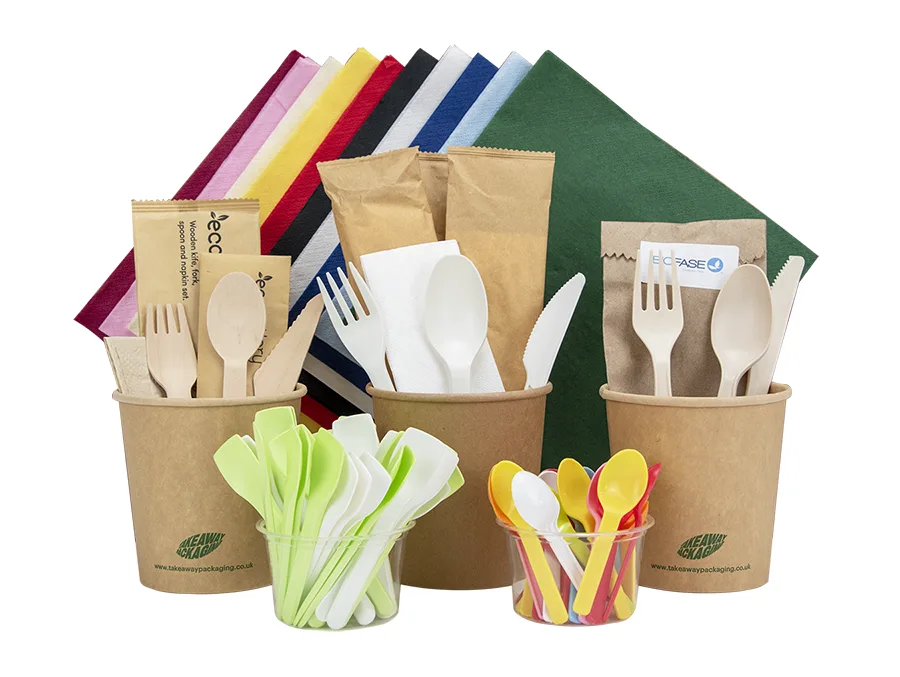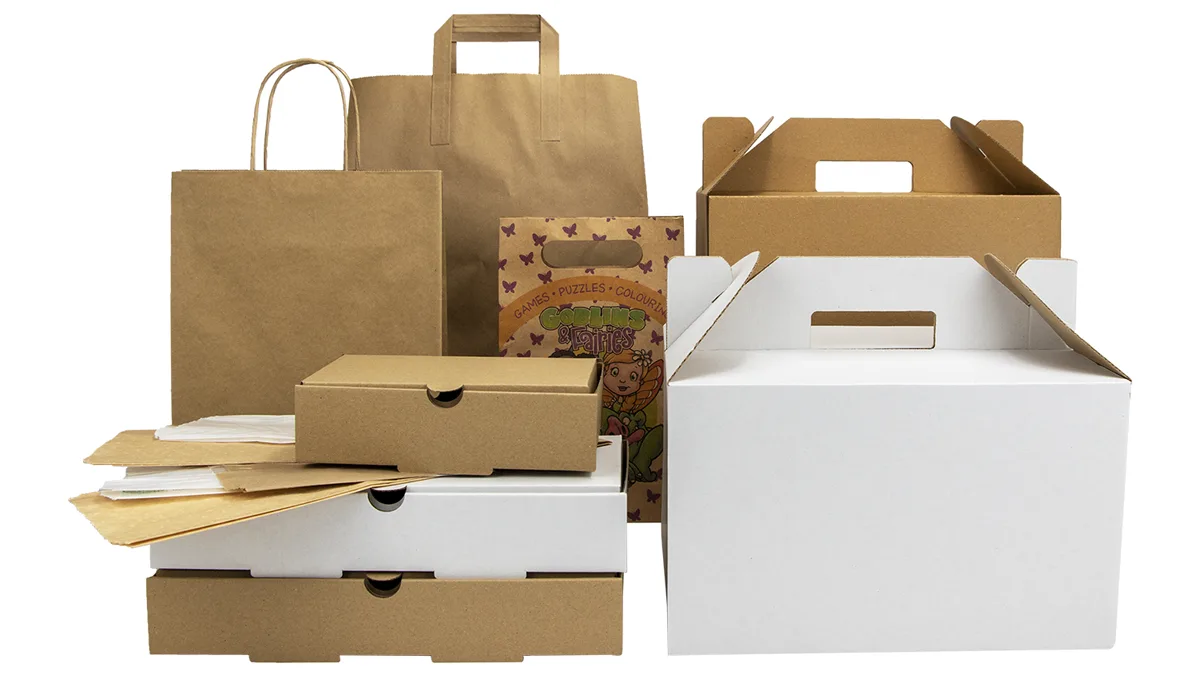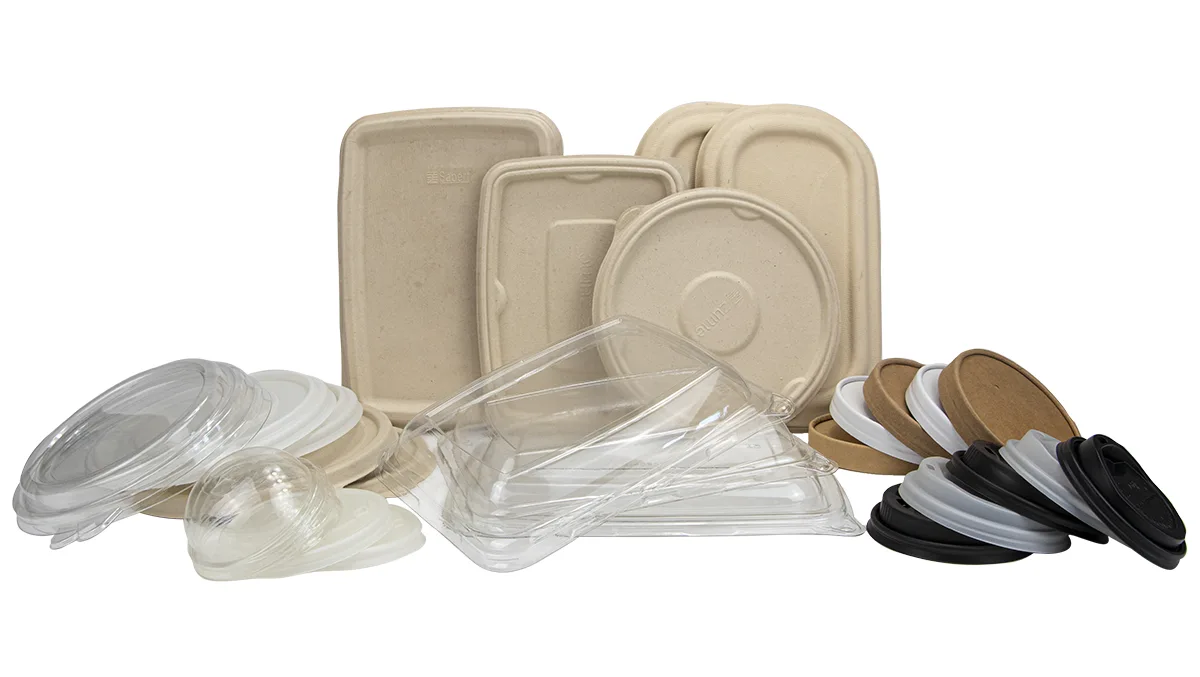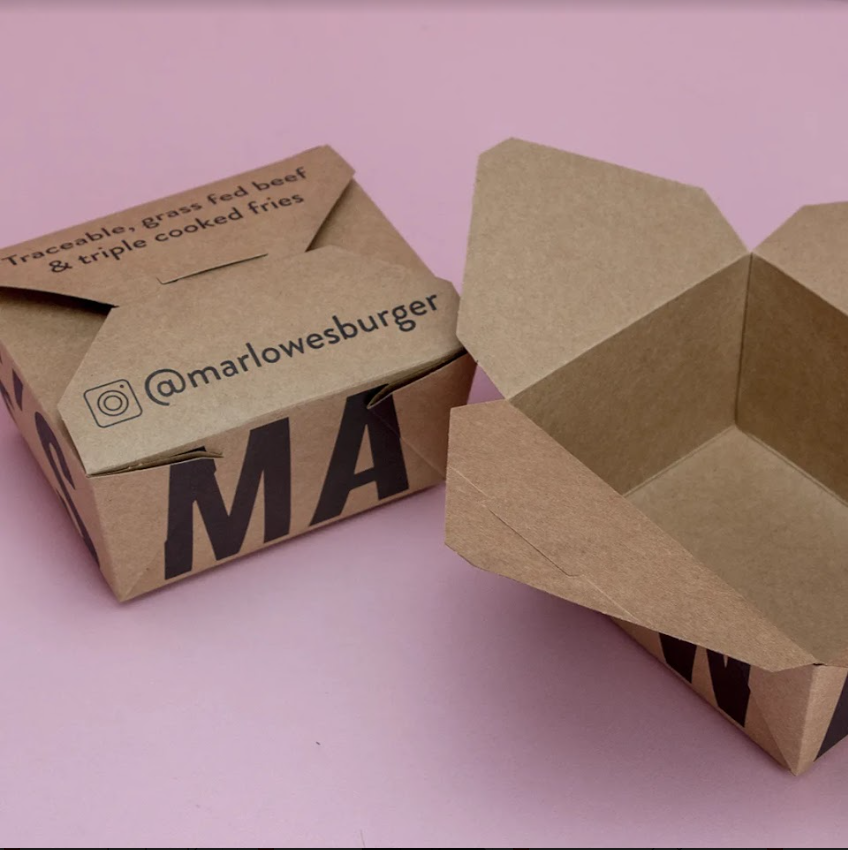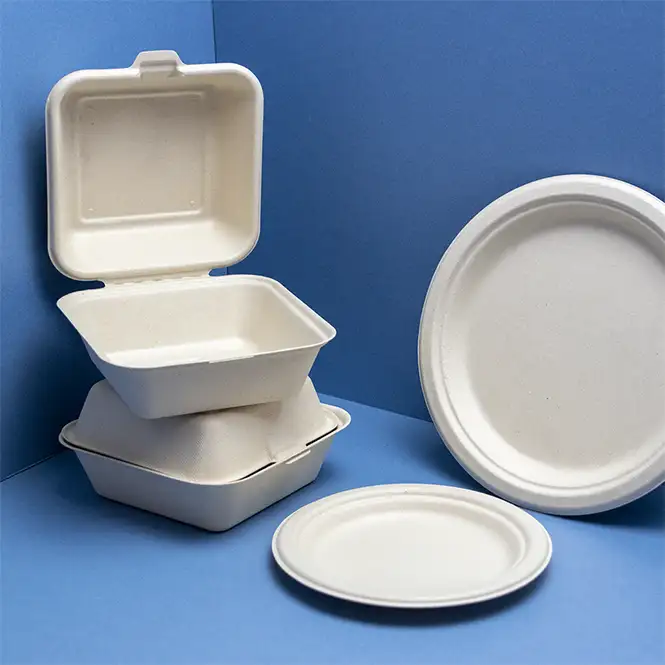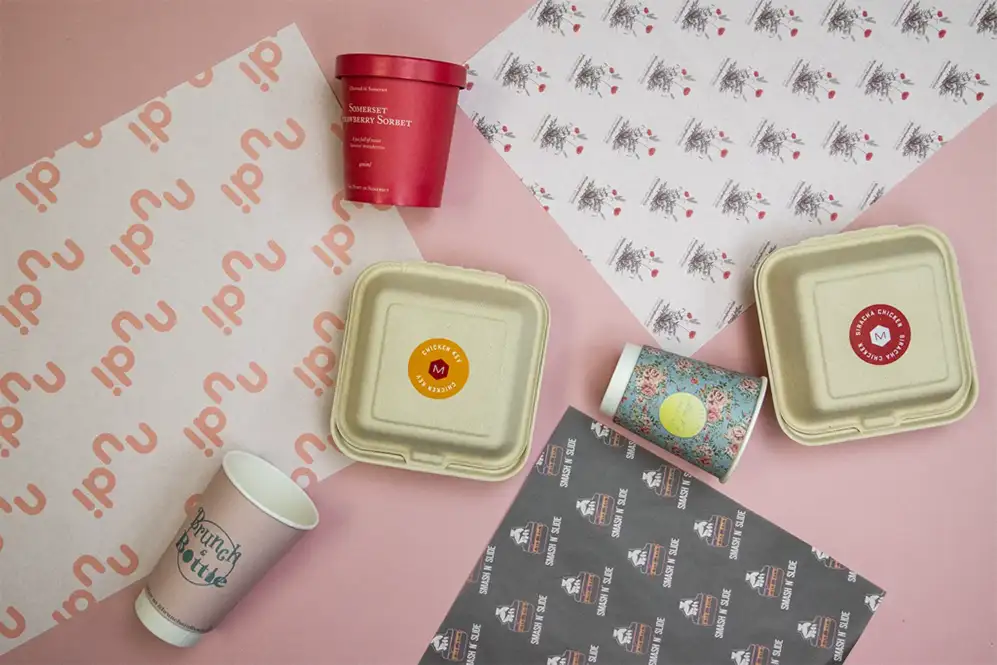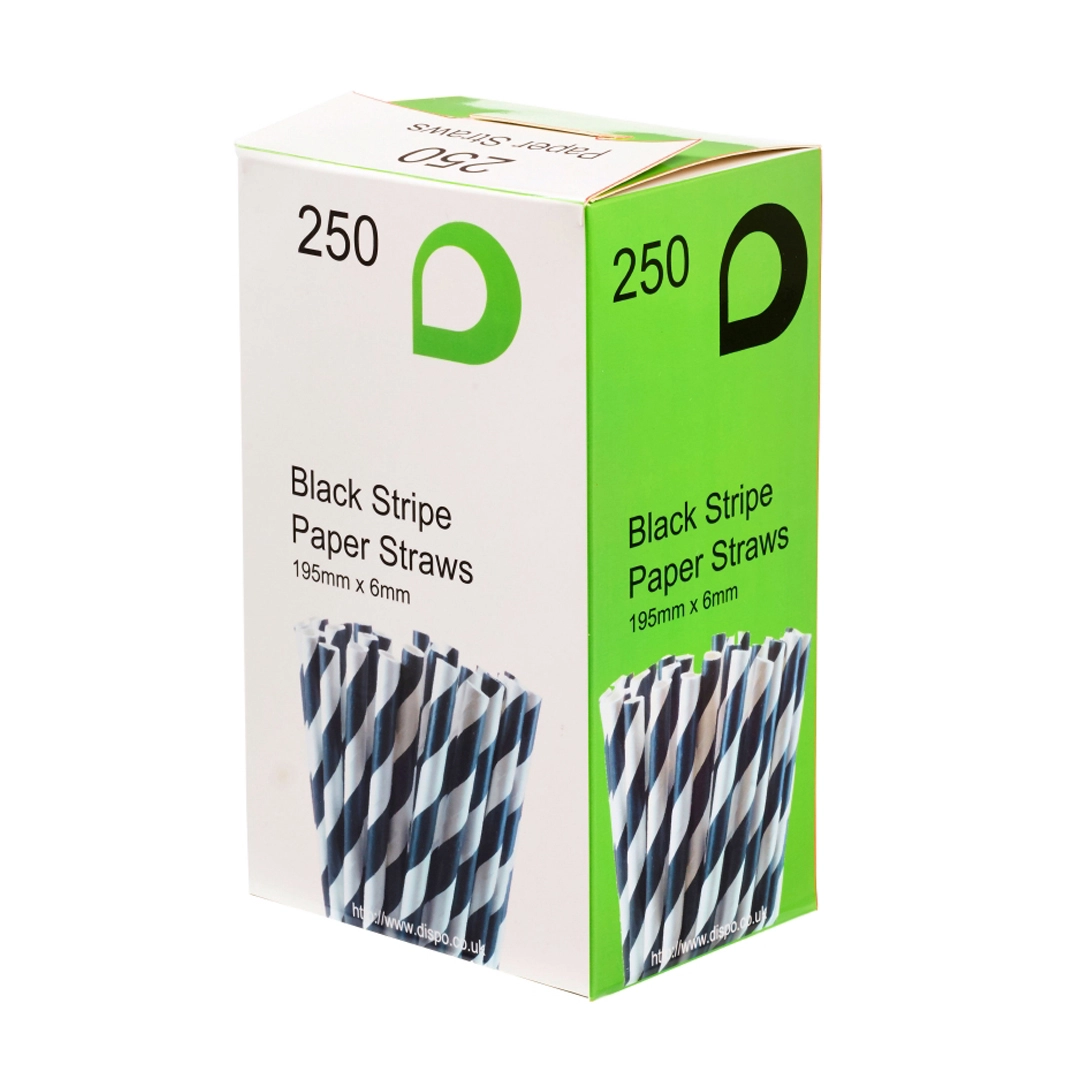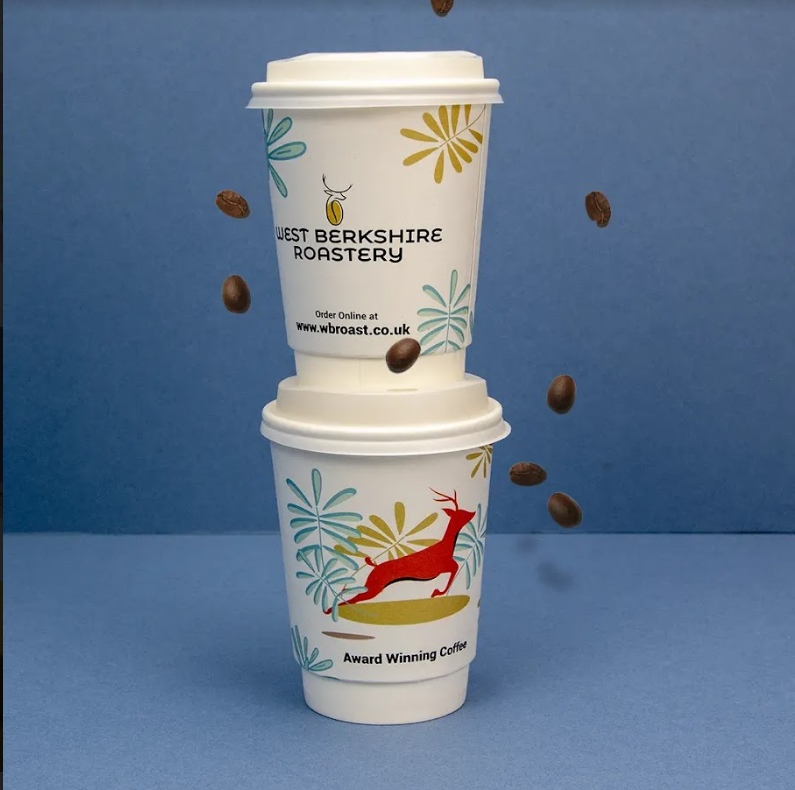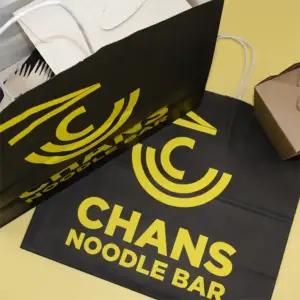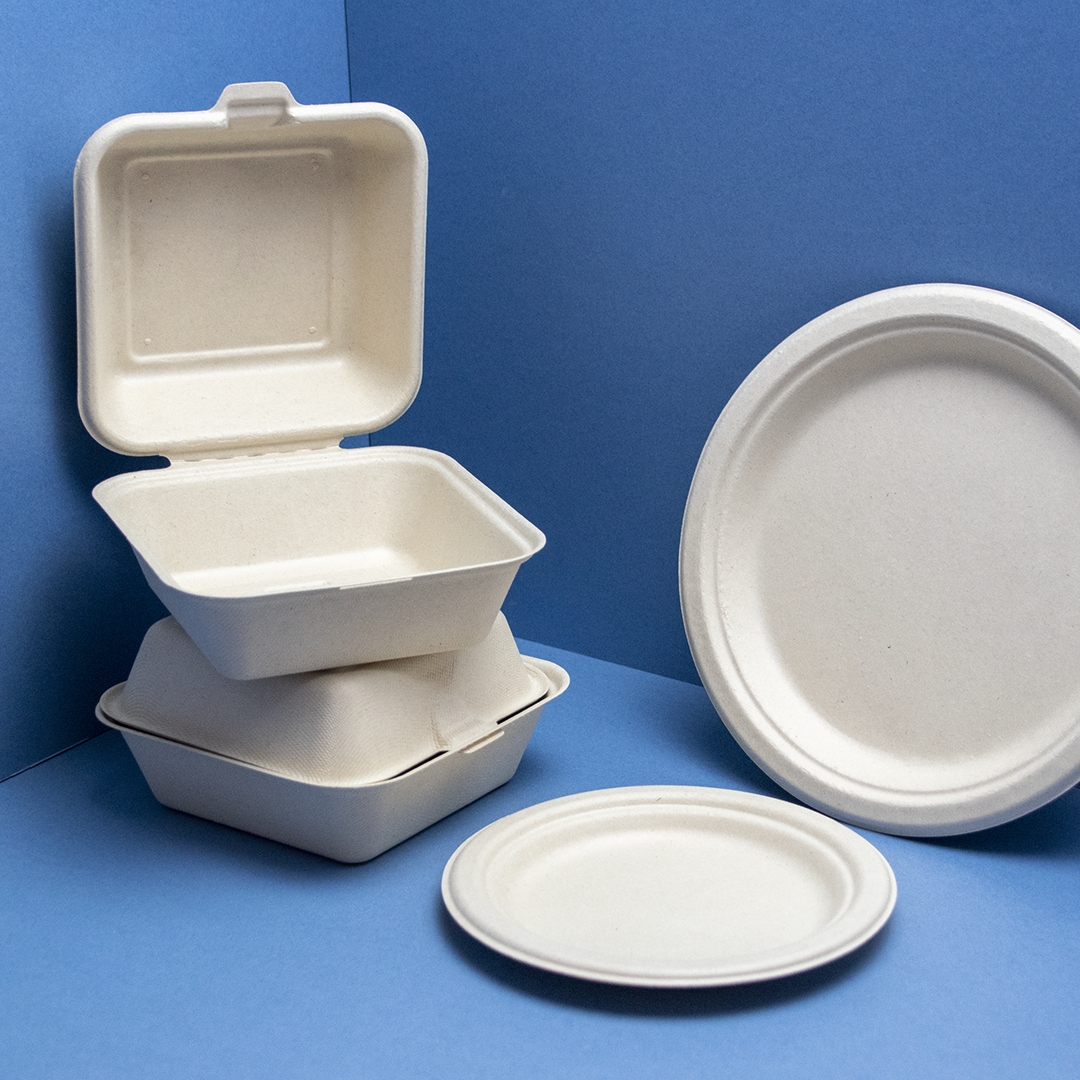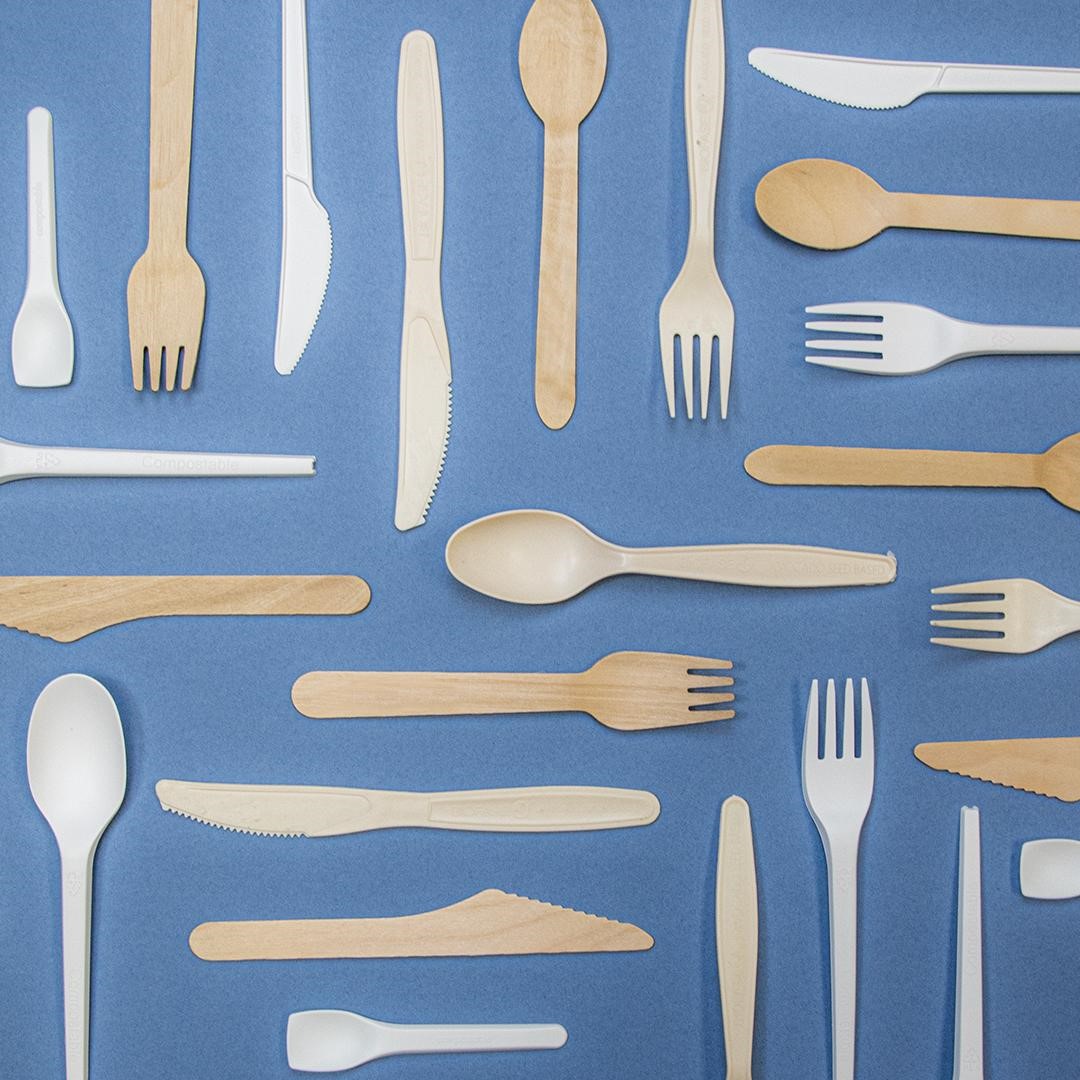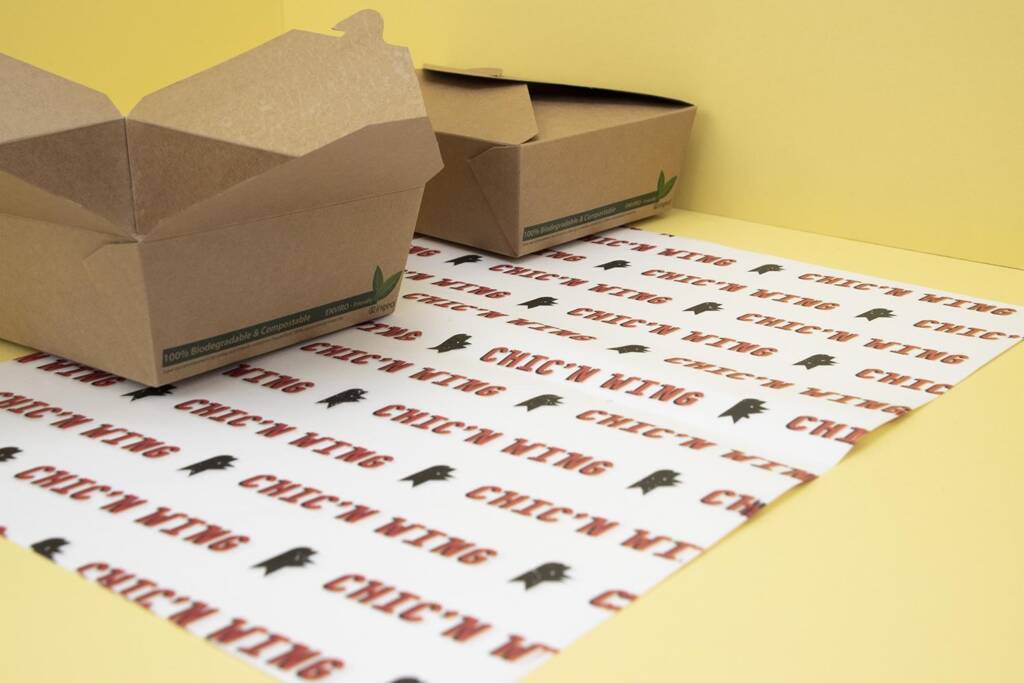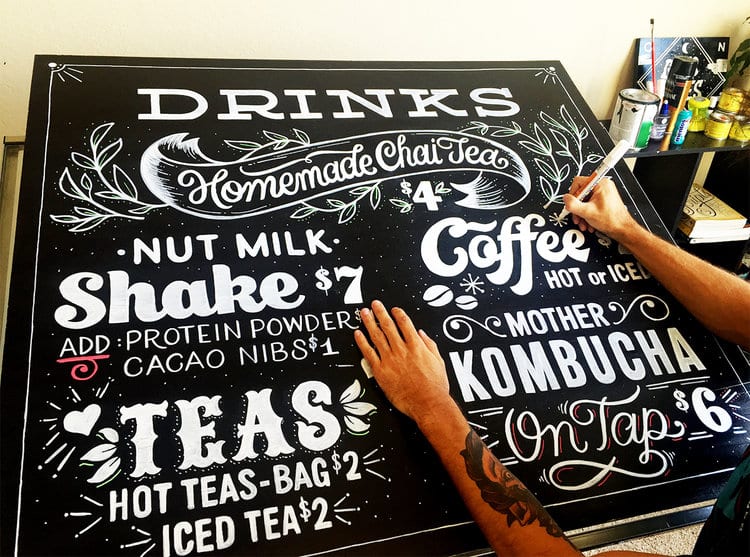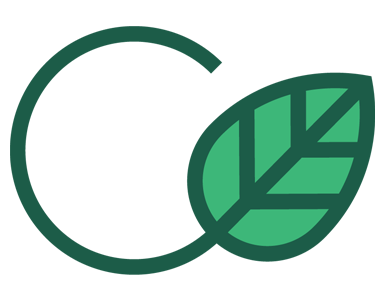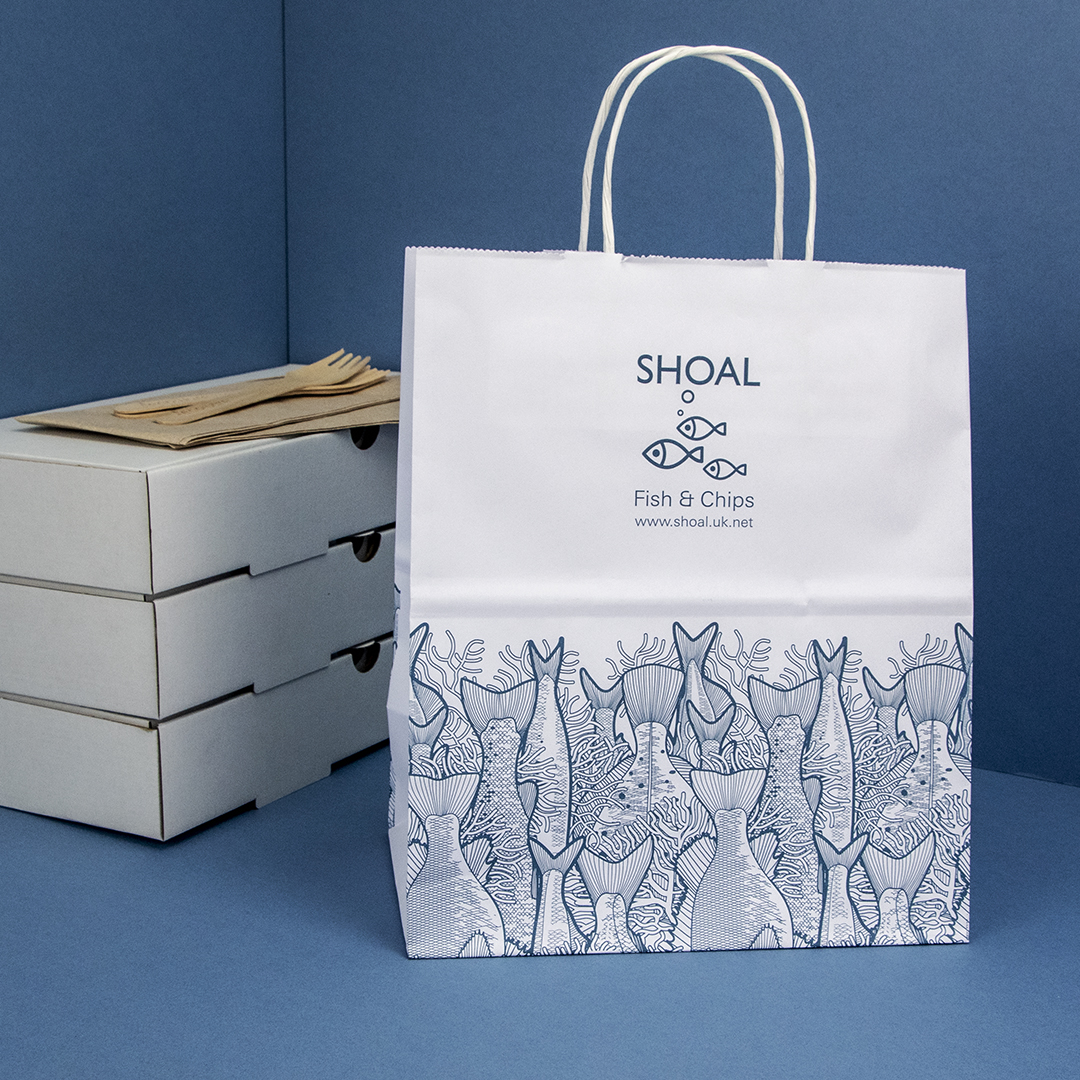The government banned single-use plastic packaging in October 2023. These changes directly impacted the food service industry — read on to find out if your business is affected.
You’re no longer allowed to use polystyrene food packaging and plastic cutlery. Instead, you are required to use eco-friendly alternatives. Fortunately, plenty of sustainable options are available, like bagasse clamshell food containers and biodegradable cutlery.
Let’s get started!
Related: What Is Food-Grade Packaging?
Which Food Packaging Products Are Banned in the UK?
Single-use plastic packaging has been mass-produced for decades. Numerous industries have heavily relied upon it since it’s a surprisingly durable and cost-effective material.
While single-use packaging is readily disposable, it isn’t biodegradable, nor are some forms of plastic packaging recyclable. Nowhere is this more prevalent than in the food service sector, where plastic has long outstayed its welcome.
Nowadays, single-use food packaging is a significant polluter of the world’s oceans. Over the last decade, the UK government has gradually introduced restrictions on single-use plastic, from the plastic bag tax to the plastic packaging tax (PPT) and now with the single-use plastic ban.
The plastic bag tax was a success, with plastic bag usage among major retailers dropping by 97%. The government continues introducing measures, and the new ban on single-use plastic packaging is just the next step. If you’re wondering what kinds of single-use food packaging are now banned, here’s an overview:
Related: Has the UK Plastic Bag Charge Worked? An Update for 2022
Plastic Straws |
In July 2021, single-use plastic straws were banned for good. Any of these items made partly or wholly from plastic fall under this ban. There are some exceptions to the ban as catering establishments (restaurants, canteens, clubs, pubs and food trucks) can continue to supply single-use plastic straws with food and drink for immediate consumption, but these rules must be followed: – Plastic straws must be kept in a hidden place and not be easily accessible – Only provide straws to customers who request them – Do not offer them to customers; this includes verbally and in writing. There are also additional exemptions for registered pharmacies, care homes, schools, nurseries, prisons, and straws that are provided for medical purposes.
|
Plastic Plates and Bowls |
The UK uses 721 million single-use plates annually, but only 10% are recycled. Single-use plates and bowls were banned in October 2023, but this doesn’t apply to shelf-ready pre-packaged food items. Producers will be incentivised to use recyclable packaging instead.
|
Plastic Cutlery and Stirrers |
The UK uses 2.7 billion pieces of single-use cutlery a year, mostly made from plastic. These pieces of cutlery take hundreds of years to break down, inflicting serious damage on our ecosystems. There are no exemptions for single-use plastic cutlery, drink stirrers or balloon sticks.
|
Polystyrene Trays and Containers |
Polystyrene is very porous, absorbing moisture from takeaway food easily. This creates a breeding ground for bacteria and makes it difficult to recycle. From October 2023, polystyrene trays and containers were banned. The ban doesn’t apply to items that require further preparation after sale, such as microwave-ready meals. Polystyrene boxes that are used to transport unprocessed or unprepared food through the supply chain are also exempt.
|
Polystyrene Cups |
Polystyrene isn’t typically recycled and becomes contaminated by food or drink. The single-use plastic ban extends to polystyrene cups, too, and there are no exemptions.
|
The single-use plastic ban applies to items entirely made from plastic and only partially, such as those with a plastic liner.
Why Is the UK Single-Use Plastic Ban Coming into Force?
The single-use plastic packaging ban is part of environment-based government initiatives to eliminate avoidable plastic waste.
When discarded incorrectly, single-use plastics damage marine environments and cost local authorities in clean-up bills — litter isn’t just bad for local wildlife, it’s an eyesore. Hundreds of animals and birds suffer from plastic entanglement or ingestion every year, and microplastics (tiny plastic particles) have even been discovered in human blood.
Although the potential harm of microplastics on the human body is still being investigated, research has shown microplastics can cause damage to human cells. We also know that phthalate exposure can cause early death from heart disease in older people. Phthalates are often found in cosmetics, fast food and plastic packaging.
The environment and health aren’t the only factors impacted by plastic waste. Richer countries are exporting their plastic waste abroad to countries with poor waste management practices. The UK counts exported waste as “recycled” — even if it wasn’t.
Single-use plastic must be banned for many reasons to prevent it from circulating in our ecosystems and bodies forever. Luckily, Takeaway Packaging has the perfect alternatives.
Related: Phthalates: The Most Dangerous Problem with Plastic Food Packaging
Eco-Friendly Packaging Alternatives to Banned Items
Disposable food packaging is out, and sustainable packaging is in. But remember, your food packaging standards need to be up to scratch. Food grade means you comply with Food Standard Agency (FSA) regulations and ensure the takeaway containers you use are safe for food products.
Let’s look at some sustainable food-safe alternatives to disposable food packaging.
Biodegradable Straws and Stirrers
|
Choose straws and stirrers made from natural, renewable AND plastic-free materials. If you’re worried about missing out on the durability of plastic, our biodegradable straws and stirrers are made from resilient Ingeo™ bioplastic. Ingeo™ has an 80% lower carbon footprint than fossil fuel-based polymers. With thick and thin diameters available, it’s easy to switch to sustainable.
|
Biodegradable and Recyclable Cups
|
For hot beverages, you don’t need polystyrene packaging. Our eco-friendly cups are lined with Ingeo™ PLA (plant-based instead of oil-based), which means they’re commercially compostable and biodegradable. If you want to put your spin on the design, get in touch and let our in-house designers help you create a branded design. |
Kraft Paper Bags |
Plastic bags are a thing of the past. Our paper grab bags are made from 100% recycled content and are fully recyclable, compostable and biodegradable. They feature a block-bottom base for extra stability, making transporting family-sized feasts hassle-free. |
Bagasse Clamshells and Tableware
|
Bagasse is the by-product pulp of crushed sugarcane and the ultimate sustainable alternative to polystyrene packaging. This fibrous pulp is perfect for creating hot and cold food containers and plates. We stock a selection of Bagasse clamshells for burgers and different-sized plates — from 7” to 10” — for all your food service needs. |
Biodegradable Cutlery
|
Single-use plastic cutlery is one of the most common plastic litter. Swap out your single-use cutlery for biodegradable cutlery with a natural wooden aesthetic, or go for a sturdy bioplastic option. Disposable cutlery doesn’t have to negatively impact our environment when sustainable alternatives are available. |
Take a look at our biodegradable bowls and Kraft food packaging for soups and salads to replace your polystyrene bowls and trays.
Related: The Best Packaging Materials for Takeaway Food and Drinks
The Benefits of Disposable Food Packaging Alternatives
Opting for sustainable packaging has other benefits besides complying with the ban on single-use plastics.
Consumers are consciously more eco-friendly in their purchasing decisions. Providing your consumers with sustainable packaging improves your brand image, which in turn can drive sales. Of course, there are financial savings, too, like avoiding the plastic packaging tax by buying packaging made from more than 30% recycled content. There aren’t any harmful chemicals in our natural packaging either, compared to plastic take-out containers.
Bagasse, PLA and Kraft board are better than plastic and polystyrene packaging in many ways, including heat retention and resistance to grease. Choosing products like our Kraft-lined pizza and meal boxes means your customers can recycle them easily as they’re moisture and grease-resistant.
Related: Can You Recycle Greasy Pizza Boxes?
Buying Takeaway Food Packaging Alternatives Online
At Takeaway Packaging, we produce environmentally friendly, high-quality packaging. We’re officially carbon-neutral, which means we offset all the carbon emissions we might make through our processes. Collaborate with us for a planet-positive future and switch from single-use to sustainable today.
Buy eco-friendly food packaging from our online shop, or get in touch for a free design quote in less than 48 hours.

